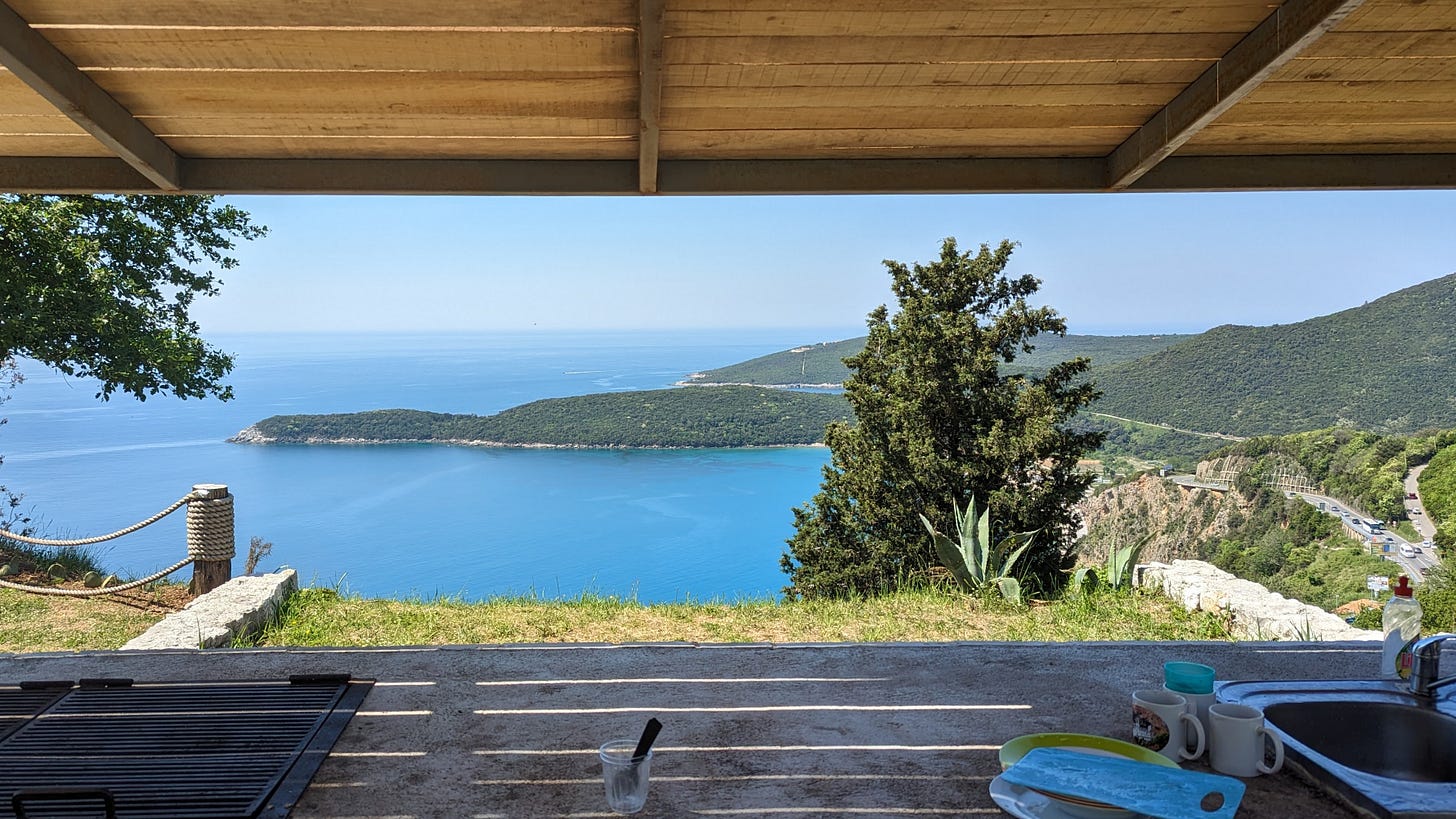Hospitality is a Two Player Game
As soon as we arrived in the Balkans, it was obvious they’ve got the hospitality turned up a few notches compared other parts of Europe. It’s inspiring, its the kind of hospitality I want to offer for others. I’ve seen a hundred small examples.
My friend met me at the bus station in Zagreb, not expecting me to navigate a new city by myself. Of course it would’ve been easy for me use Google Maps and Uber and meet him at his place, but that’s not the point: it's not about convenience, it’s about respect. He bought me lunch, told me stories, showed me around his neighbourhood while catching me up on the history of Yugoslavia. I remember this feeling, this is what it’s like to hang out with someone who has lived in the same town for 40 years.
After my Zagreb trip I reunited with Nati the wife and Lucky the campervan on the Adriatic coast. We visited some beautiful spots in Croatia, but honestly in most places it felt like I was treated as an economic opportunity rather than a guest. Fair enough, people have to make a living, so I have no complaint if they want to overcharge rich travellers for a coffee.
But the seeds of this “hospitality” post really started once we crossed the border into Montenegro. We’re sitting at a campsite in Seoce, near Budva. The hosting here has been exceptional.
The camp is run by father and son, on their old family land. How old? They've been here since the 11th Century. I’m making goggly eyes and coughing as I write that. 11th Century. I can’t ever comprehend how ancient that is. The hospitality masterclass started as soon as we arrived.
First up: a shot of rakija, devastatingly strong liquor they brew at home. The perfect technology to settle the inevitable “getting to know each other” jitters. Igor’s gregariousness is infectious, guests get chatting with each other, the boundaries between strangers dissolve.
He explains, there’s a beer fridge here, but this is not a hotel. Take a drink if you like; please leave tips so we can fill it again for the next guests. Functionally that’s almost exactly the same as buying a beer, but it’s entirely different. We’re trusted to contribute more-or-less enough, motivated by respect for our hosts and care for imagined future guests.
The next morning he comes visiting with a loaf of fresh bread. Later in the day: pastries baked by his sister. He insists on driving us to the grocery store rather than us having to pack up the van for the trip.
There’s a handful of other gestures too, moments of attentiveness that make me feel perfectly at home. Somehow it feels almost embarrassing to list them out. Isn’t this stuff obvious? Doesn’t everyone know how to be a decent host? It should be the most mundane thing in the world. It is, where I come from. But as a traveller who spent much of the last decade on the road, I gotta say, the skills of hospitality are not evenly distributed.
What is it that the super hospitable places have in common?
Reflecting now, one obvious factor is the length of time someone has been in one place. If you’ve lived here forever, you naturally step into a hosting role. You want to show guests the best of what this place has to offer. Sharing your favourite spots is a gesture of intimacy. Like a couple of 6 year olds on a playdate, showing off our favourite toys: look at this amazing shell I found isn't it great!!
And the generosity of the host comes with an obligation too. If the guests know how to read between the lines, they’re duty bound to reciprocate. They’re obligated to treat the land with the same care that the hosts do. After all, it’s the land that’s hosting the hosts. Where I come from, the guests are also obligated to share the story, to elevate the reputation of the people who live here.
I guess that’s it. Hospitality is a two player game. As populations get more mobile, there are fewer people who naturally feel they can play the host role. And on the other side, we also need good guests too. People that know what it means to respect a place, to leave it better than you found it. If either party forgets how to play, the game is ruined for everyone.
Anyway, I need to wrap this up and get back to work. It’s weird being a digital worker surrounded by people on holiday. But Igor made sure we’re set up for good internet, so I don’t want him to catch me slacking off when I should be busy at work.




